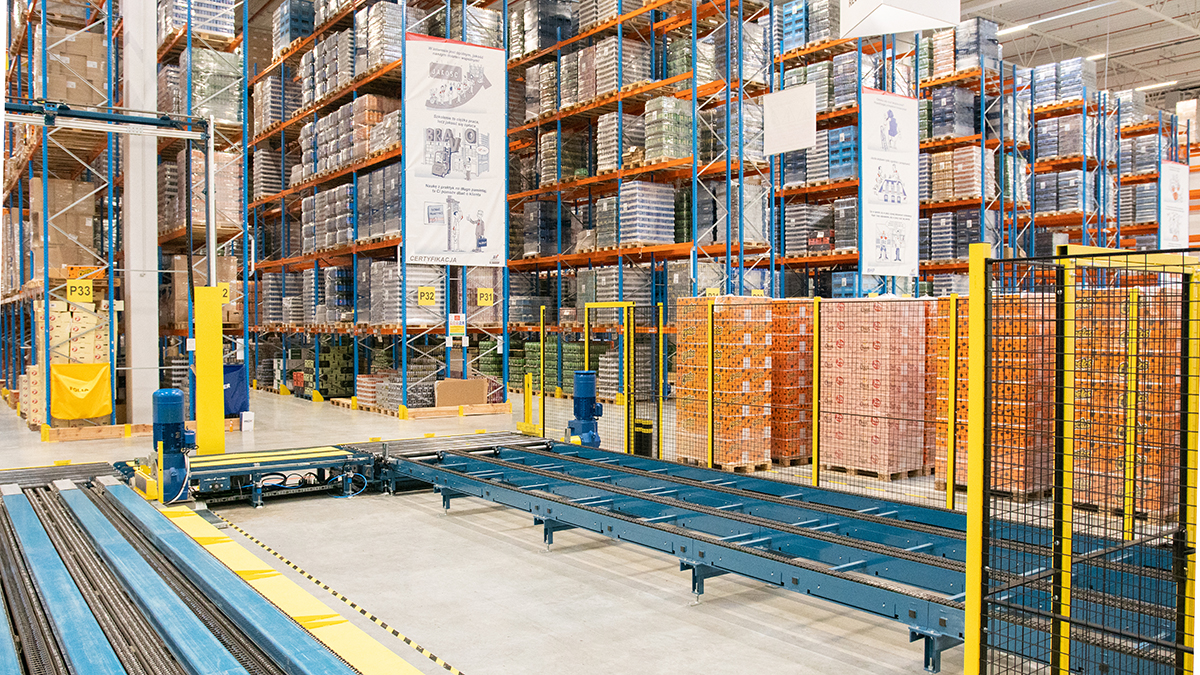Introduction
In an era where supply chain efficiency determines the competitiveness of entire industries, the Thailand ATLS Market is rapidly gaining prominence as a critical component of the nation's logistics evolution. Automated Truck Loading Systems (ATLS) have emerged as a transformative force, revolutionizing the way goods are handled, transported, and distributed. This transformation is particularly evident in Thailand, where the push for smarter, faster, and more cost-effective logistics operations is accelerating at an unprecedented pace.
Among the global innovators in this space, Actiw Ltd., a Finland-based logistics automation specialist, has carved out a unique niche by delivering highly efficient, space-saving loading solutions. With a strong reputation for designing systems that optimize warehouse space and streamline truck loading processes, Actiw is well-positioned to contribute to the growing needs of Thailand’s logistics sector.
Actiw Ltd.: A Pioneer in Logistics Automation
Actiw Ltd. specializes in fully automated truck loading solutions for heavy and fast-moving goods. Known for its flagship solutions such as the LoadPlate™ and LoadMatic™, the company provides systems that reduce loading times, enhance safety, and increase productivity with minimal manual intervention.
What sets Actiw apart is its commitment to tailored solutions that integrate seamlessly into existing supply chain infrastructures. These systems are particularly attractive to industries such as food & beverage, paper & packaging, and building materials, where high volumes and tight schedules are the norm.
In addition to efficiency, Actiw emphasizes sustainability by reducing energy consumption and carbon emissions, aligning with global goals and Thailand’s green logistics aspirations.
Thailand's ATLS Market: Current Dynamics
Thailand’s logistics industry is undergoing a major transformation, driven by:
- Government Infrastructure Projects: Under the Thailand 4.0 policy, the government has heavily invested in improving logistics connectivity—through the Eastern Economic Corridor (EEC), road and rail enhancements, and smart logistics parks.
- E-Commerce Boom: Thailand is one of Southeast Asia’s fastest-growing e-commerce markets, demanding faster and more accurate fulfillment solutions.
- Manufacturing Shift: With global companies relocating operations to Thailand due to geopolitical shifts and cost advantages, efficient logistics has become non-negotiable.
These drivers have created a ripe environment for automated logistics solutions, particularly ATLS, which offer speed, safety, and scalability.
Strategic Adaptations and Market Approaches
To capitalize on this opportunity, companies like Actiw and local stakeholders in Thailand are adopting several key strategies:
1. Partnerships and Localization
Actiw’s success in expanding to international markets, including Asia, often comes through local partnerships with system integrators and logistics providers. In Thailand, such collaborations enable better customization of solutions to fit unique warehousing and transport requirements, while also helping to navigate local regulations and customer preferences.
Localization also includes training and support services, which Actiw has prioritized to ensure smooth implementation and long-term system reliability.
2. Integration with Smart Logistics Systems
The integration of ATLS into broader smart logistics ecosystems is another strategic move. Thai companies are increasingly demanding end-to-end automation, where ATLS connects seamlessly with Warehouse Management Systems (WMS), Enterprise Resource Planning (ERP) platforms, and IoT-based monitoring tools.
Actiw’s systems are designed with such interoperability in mind, allowing seamless digital coordination for smarter decision-making and real-time visibility.
3. Focus on Safety and Labor Optimization
Labor shortages and safety concerns, especially in heavy industries and high-volume logistics centers, have propelled demand for systems that reduce manual handling. Actiw’s ATLS solutions drastically minimize human intervention during loading processes, enhancing occupational safety while addressing labor cost pressures.
Emerging Innovations in Thailand’s ATLS Ecosystem
While Thailand's adoption of ATLS is still in a growth phase, innovation is rapidly gaining momentum. Key trends include:
- AI-Driven Predictive Maintenance
Smart maintenance solutions are being integrated to monitor equipment health and predict failures before they occur. Actiw has started incorporating AI algorithms into its systems, ensuring reduced downtime and longer equipment lifespans.
- Mobile and Modular Loading Systems
Given the diversity of operations in Thailand—from port logistics in Laem Chabang to rural manufacturing plants—there is rising interest in modular and mobile ATLS solutions that can be deployed flexibly across locations. Actiw’s systems are designed with this scalability in mind.
- Sustainability-Driven Design
As Thailand pushes for more sustainable supply chains, energy-efficient and low-emission logistics solutions are gaining ground. Actiw’s loading systems contribute by cutting truck idle times and optimizing energy usage, directly supporting carbon reduction goals.
Challenges and Opportunities
Despite the positive outlook, some challenges remain:
- High Capital Investment: Initial setup costs can be a barrier for SMEs.
- Awareness and Training Gaps: Many Thai firms are still unfamiliar with ATLS benefits and require hands-on demonstrations or ROI-based justifications.
- Customization Needs: Diverse industrial setups in Thailand necessitate flexible solutions—something not all ATLS providers can offer.
However, these challenges also open doors. Actiw Ltd.’s modular approach, proven global track record, and readiness to invest in training and support, position it well to fill these gaps.
Conclusion
The convergence of advanced logistics technologies and Thailand’s strategic ambition to become a Southeast Asian logistics powerhouse creates a fertile ground for innovation and investment. Actiw Ltd., with its proven expertise in automated loading and commitment to adaptable, sustainable systems, is well-positioned to play a pivotal role in this evolution.





Comments